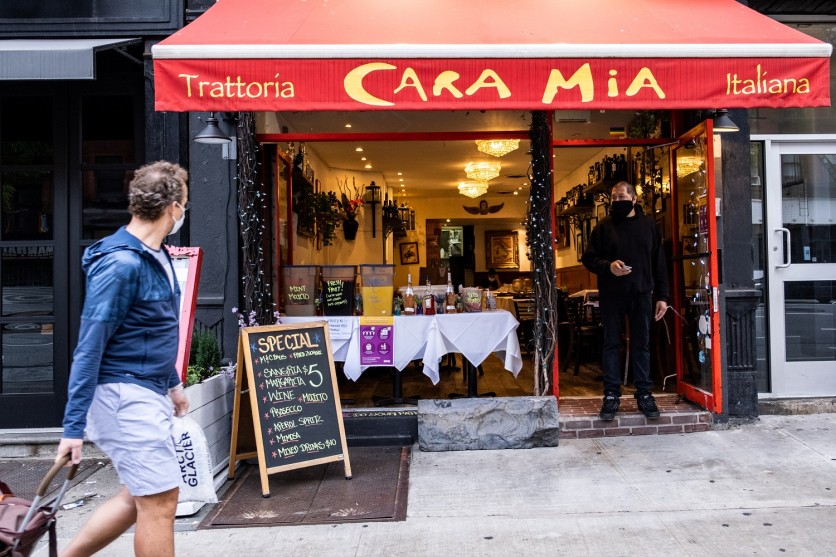A study analyzed nearly a million restaurants, fast-food chains, and hotels in eight U.S. states and found these businesses are super-spreaders of the coronavirus.
Researchers from the Beth Israel Deaconess Medical Center in Boston, Pennsylvania State University, and the University of Pennsylvania probed on coronavirus transmission in 918,094 businesses in eight states. The study is published by Medrix, a nonprofit organization with headquarters in Redmond, Washington.
The study covered COVID-19 cases by county between Jan. 22 and May 22 and compared the data with pre-pandemic consumer behavior surveys. Researchers looked at the 2018 American Community Survey from the United States Census Bureau that looked at Americans' frequency of visits to businesses and the average length of stay.

The study found that the risk of coronavirus spreading was five times higher in these businesses as they are densely-packed with people who linger for a long period at close range.
Although the research is still not yet vetted by other researchers, people in the U.S. dine out for up to four times a week, so the country has become the coronavirus center of the world.
New York and California are the two most populated states in the U.S. with the highest number of COVID-19 cases, with 367,000 and 97,000, respectively. Similarly, California has the most restaurants with 87,225, followed by New York with 58,027.
Among the 918,094 establishments in 187 counties studied, the researchers identified 156,307 individual businesses as super-spreaders. With these duper-spreading businesses, 116,605 were dine-in restaurants, 26,196 were limited-service restaurants, such as delis, fast food chains, and takeaways, and 13,432 were hotels and motels.
A "super-spreader" is an incident in which a COVID-19 patient infects a high number of people. In this case, these restaurants have become the venue for the coronavirus outbreaks in these cities
The study was published as about 38 states have already allowed the reopening of restaurants plans or planning to do so. Most states have only allowed restaurants to operate at 25% to 50% capacity with tables six feet apart.
Researchers warned the public of a second wave of the epidemic and more deaths if governments do not apply strict restrictions when these establishments reopen.
80% of COVID-19 Cases are caused by super-spreaders
Another study claims that 80% of coronavirus cases outside China are traced back to super-spreaders.
Using a mathematical model to COVID-19 outbreaks outside of China, researchers from the London School of Hygiene and Tropical Medicine and the Alan Turing Institute found that nearly 80% of all "secondary transmissions may have been caused by less than 10% of infectious individuals, which are known as super-spreaders.
This is almost the same as many other infectious diseases like HIV, measles, and Ebola, in which 80% of cases are caused by just 20% of people.
"As most infected individuals do not contribute to the expansion of an epidemic, the effective reproduction number could be drastically reduced by preventing relatively rare super-spreading events," the study published in the journal Nature explained. Also, the study found that "identifying characteristics of settings that could lead to super-spreading will play a key role in designing effective control strategies."
Scientists believe various Covid-19 infections are traced on 'super-spreading' events attended by a singular infected person who is regarded as a "super-spreader."
Around one out of 10 COVID-19 patients transmit the virus to far more people than the majority do.
While numerous theories arise why these people are more infectious than others, there is no specific answer yet.
One theory suggests that the immune systems of super-spreaders cannot suppress the virus, while others claim they do not experience symptoms, so they carry on with their normal life and transmit the infections to others.
ⓒ 2026 TECHTIMES.com All rights reserved. Do not reproduce without permission.




